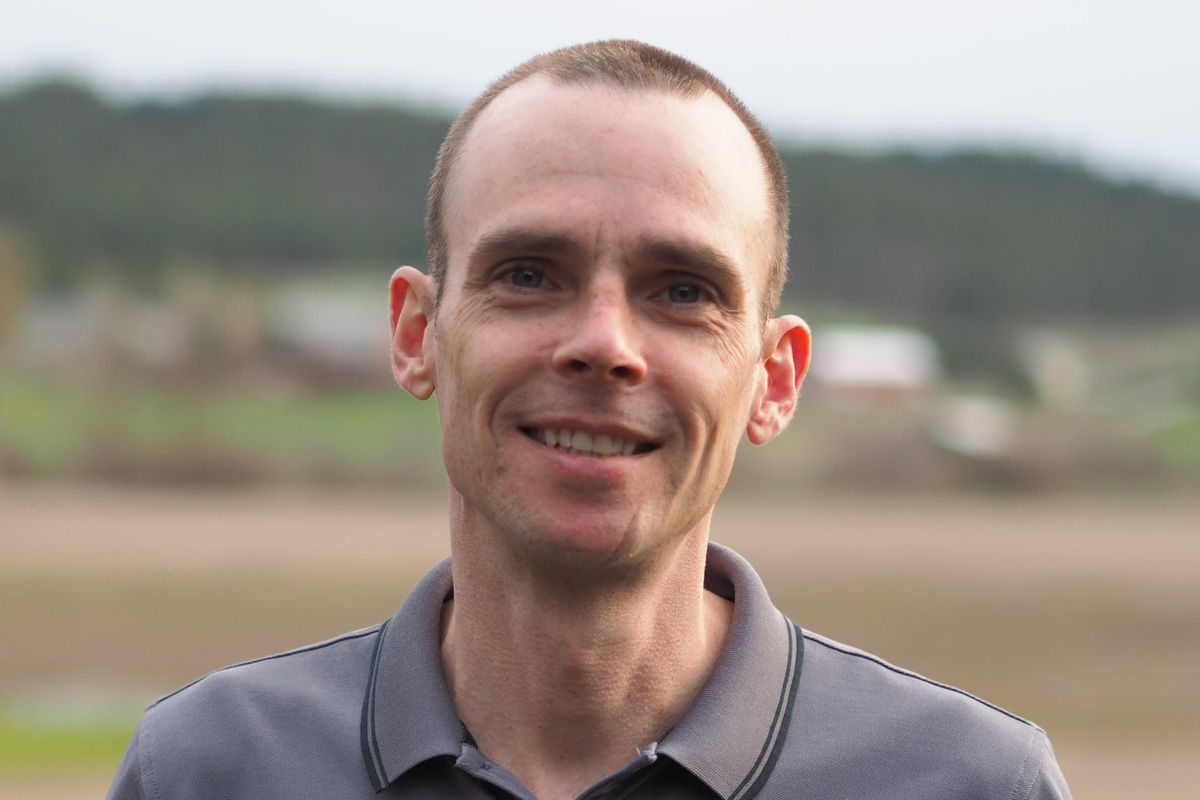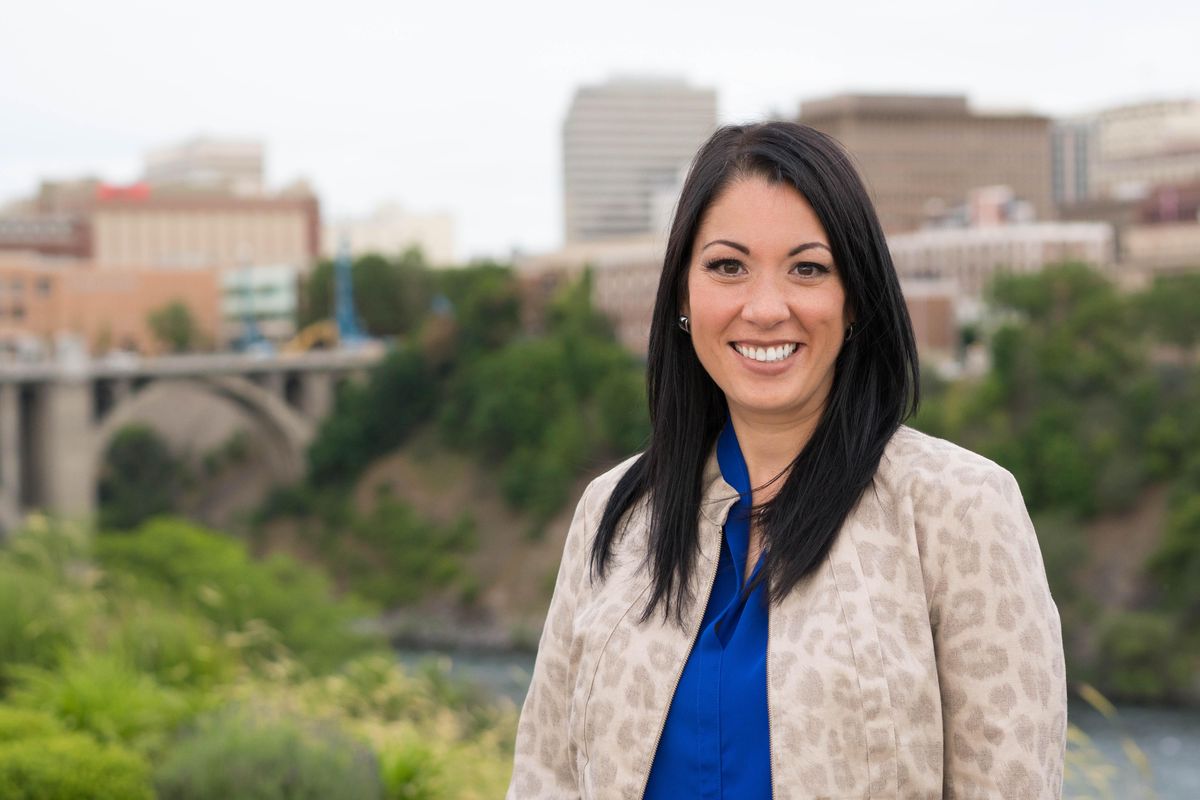With complicated, potentially contentious decisions on horizon, four vie for Spokane schools board seat
Michael Wiser. (Courtesy photo)
Spokane’s newest board member will inherit thorny and contentious decisions in November.
Changing attendance boundaries and grade configurations. A class-size reduction mandate that’s putting pressure on an already growing district. Ongoing concerns with disproportionate discipline of poor, minority and special education students. Community concerns about teacher and student safety.
Four people are running for the six-year nonpartisan position.
Michael Wiser, 44, is currently on the school board after being appointed in March. Wiser, a father of two and the vice president of strategic planning for CHAS Health, replaced board member Bob Douthitt, who announced his resignation Jan. 19.
Douthitt was four years into his six-year term.
Instead of running for a two-year seat, Wiser is running for the full six-year term. Current board President Deana Brower is running unopposed for Douthitt’s former seat. Brower isn’t sure if she’ll run again after the two-year term expires. That decision is partially due to the fact that Brower’s youngest child will graduate high school next year.
“Being a parent with kids in our schools, I think has been a really important perspective,” she said.
Wiser says his experience as a health care administrator gives him the necessary skill set to be an effective board member. His work at CHAS Health requires analyzing large, complex systems methodically. That experience, paired with his practical experience as a parent and a parent volunteer in the district, gives him a full perspective, he said.
Yet the last five months serving on the board have been a learning experience, Wiser said. In addition to the pure complexity of the education system, Wiser said there are district processes he believes need to change. One in particular is how widely cultures and practices can vary between individual schools.
“I was surprised how much autonomy principals have,” he said.
“Should we collectively as a district set some clearer goals for ourselves?” he added.
That isn’t to say schools should be micromanaged, he said. But for certain districtwide goals, like restorative discipline practices, it’s important they are implemented consistently.
Wiser also thinks there should be more focus on students’ and parents’ experience of school, instead of relying so heavily on test scores and curricular achievements.
“I think what we miss sometimes is did the students and parents have a good experience with their education,” he said.
Jennifer Thomas, 40, the director of business development for the Jonah Project, believes her experience in the nonprofit world, as well as event planning, would allow her to successfully juggle parent, teacher, administrative and legislative concerns.
“As an event planner you bring people together,” she said.
She added, “It doesn’t intimidate me to look at big hard issues.”
Additionally, she said her experience living in poverty after the 2008 recession allows her to connect in a uniquely personal way with students and families in the same situation, she said.
Thomas is particularly concerned with disproportionate discipline of minority and special education students. She’s supportive of increased education spending, however she worries that too much of that money is being diverted away from teachers and students.
“I think a lot of money is spent on administration,” she said.
One recent board decision Thomas agrees with was a decision to postpone a vote on whether to implement a new middle school sex education curriculum. She was happy the board waited for more input.
However, she thought board members should have been more receptive to community concerns during a sometimes-heated board meeting on June 14. At the meeting, several parents addressed the board, sometimes angrily, about how special education students are treated in the district. One parent in particular asked, repeatedly, how the district would respond.
“I’m a parent and I’m a member of the community and all that mom wanted was to have someone validate her,” Thomas said.
Jessica Yocom, 30, an IT student at Spokane Falls Community College, is running partially in the hope of inspiring a new generation of political engagement. She said her experience caucusing for Sen. Bernie Sanders during the presidential election drove her to run for school board.
“I want people to know they can (run for office),” she said. “Your voice is just as valuable as the rich guy down the street.”
If elected, Yocom said she will inject the board with some diversity. She’s a single mother and a college student.
“I’m trying to represent the demographic that is not being represented,” she said.
In particular, she is concerned with the school board’s response to alleged racist bullying following President Trump’s election.
“I don’t think any of these students feel any better,” she said. “I feel like the board didn’t even realize that what they were discussing was that big of a deal.”
Broadly, Yocom believes there should be more education aimed at building practical skills and knowledge in schools, especially around the civic process.
“I don’t feel like there is a whole lot of (education around) how to be a participating member in our community,” she said.
Miranda Ackerman is also running, however she did not return multiple calls and emails requesting an interview.

